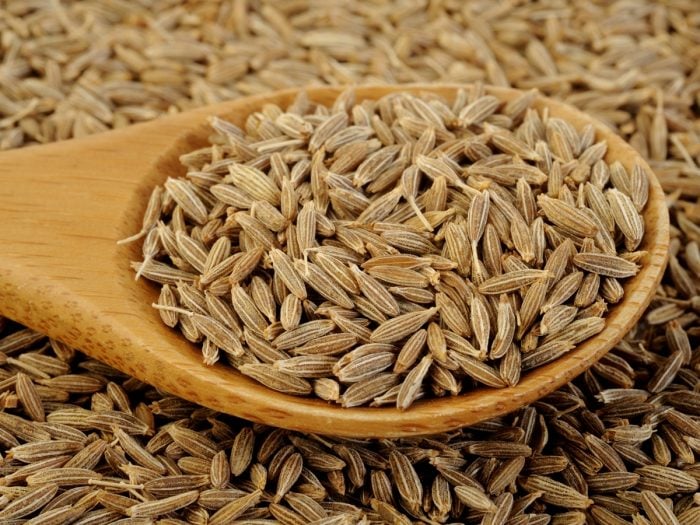Cumin (Cuminum cyminum), a popular spice native to the Middle East and India, is a popular spice. The blooming plant belongs to the parsley family, and it yields seeds that may be powdered or eaten whole. Cumin has been used as a flavouring ingredient and a preservative for millennia. Although not all of these uses are backed by research, some people feel cumin is beneficial to the body and can even help with weight reduction.
Health Benefits
While many cooks use cumin to flavour Mexican and other cuisines, it is also used to cure a variety of medical issues such as gas, bloating, and diarrhoea. As a stimulant or aphrodisiac, the spice is occasionally used orally. Others use cumin to alleviate colic in newborns or to promote menstrual flow. Cumin, on the other hand, has no clinical evidence to support any of these applications.
Cumin appears to have some weight-loss potential, according to relatively limited evidence. Cumin powder supplementation (3 grammes per day) was found to increase the benefits of a reduced calorie diet for weight loss in a 2014 trial of overweight and obese women.
Another review of prior research published in 2019 showed that different doses of cumin supplementation might help patients with type 2 diabetes lose weight, improve their BMI, and improve their fasting blood glucose levels.
Finally, researchers discovered evidence supporting the use of cumin to reduce total and LDL cholesterol in a 2018 re-analysis of prior trials.
3 For a beneficial impact on blood cholesterol levels, subjects in separate trials took cumin powder (3 grammes), cumin extract capsules (225 to 300 mg/day), or cumin essential oil capsules (25 to 100 mg/day).
“This comprehensive review with metaanalysis revealed that cumin supplementation might be considered as a safe treatment alternative alongside statins and other commonly given lipidlowering medications,” the study authors stated.
It’s worth noting that black cumin (Nigella sativa) and black seed oil (extracted from black cumin seed) are also utilised for medical purposes, with some of these claims backed up by clinical research.
Despite having a similar name to cumin, black cumin originates from a different plant and is a distinct chemical.
Nutrition
Ground cumin contains nearly no calories. If you use regular amounts of the spice in dishes, it will not add calories, carbs, protein, or fat to your diet.
A single serving of cumin seed can add a few calories to your daily total. Cumin seed has around 22 calories per tablespoon (about 6 grammes). According to USDA data, carbohydrate (3 grammes) provides the majority of the calories, largely in the form of fibre. Cumin seed also contains a tiny amount of protein (1 gramme) and fat (1.3 gramme).
A tablespoon of cumin seeds has vitamins as well. A rise in vitamin A (2 percent of your daily recommended consumption), vitamin C (1 percent), riboflavin, niacin, and vitamin B6 will help you feel better (1 percent each). 1.5 grammes of choline are also included. Calcium (56 mg), iron (4 mg), magnesium (22 mg), phosphorus (30 mg), potassium (107 mg), sodium (10 mg), and tiny quantities of zinc, copper, and manganese are among the minerals found in cumin.
Selection, Preparation, and Storage
Most supermarket stores have ground cumin on hand. Cumin seeds, on the other hand, may be more difficult to come by. The seeds (which resemble caraway seeds) may be purchased at gourmet stores and specialised markets.
Store ground cumin or cumin seeds in a cold, dark, dry location away from the heat, such as a closet or cabinet. Ground cumin should last around six months if stored properly. Cumin seeds have a shelf life of around a year.
Cumin is found in a variety of Mexican, Indian, and Middle Eastern recipes. To appreciate the flavour of cumin, try any of the dishes below.



